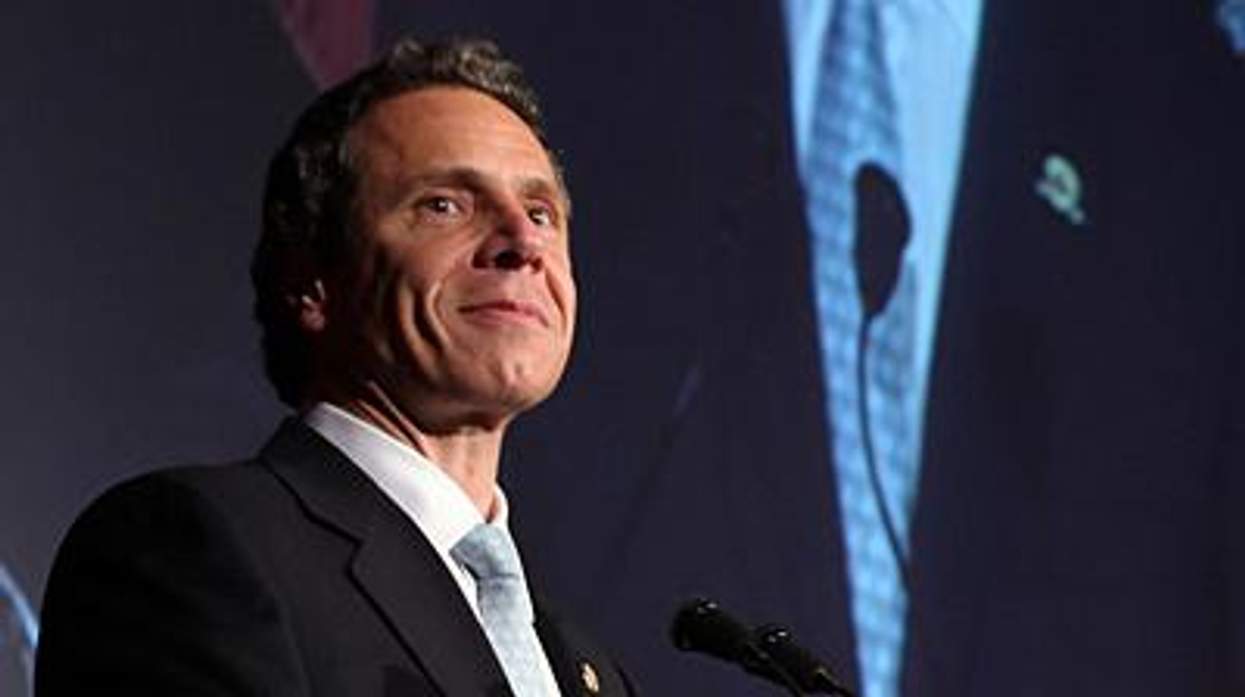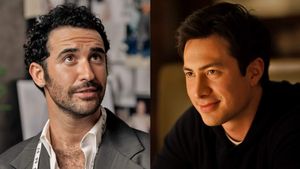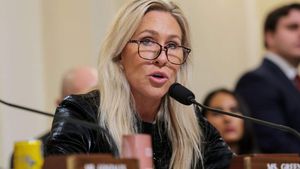The process leading to the passage of the marriage equality law in New York last year did not break procedural rules pertaining to the legislature, as claimed in a challenge brought by a conservative religious group, a state appeals court ruled Friday.
The Appellate Division of state Supreme Court in Rochester said in a 5-0 decision that closed-door negotiations between Republican senators and campaigners for the bill, including Governor Andrew Cuomo and New York City Mayor Michael Bloomberg, did not violate the state's Open Meetings Law. New Yorkers for Constitutional Freedoms, a group representing evangelical Protestants that lobbied against the measure's passage in Albany, filed the suit last year on July 25, one day after the new law took effect.
"Today the New York State Appellate Court, Fourth Department upheld New York's Marriage Equality Act, which ensures that marriage is available to all New York couples regardless of sexual orientation," said Cuomo in a statement. "This law was passed by both houses of the legislature and signed into law in June 2011. The court's decision affirms that in our state, there is marriage equality for all, and with this decision New York continues to stand as a progressive leader for the nation."
The Open Meetings Law requires that the public be allowed access to the deliberations of legislative bodies. Last November, Supreme Court Judge Robert Wiggins in Livingston County wrote that there was not significant evidence to draw a conclusion on that issue, but he ruled the case could proceed. His opinion was notable for its strong language that excoriated the "clear arm-twisting by the Executive on the Legislative permeates this entire process."
New York attorney general Eric Schneiderman argued in an appeal that the meetings between the Republican senate and invited guests were exempt from the Open Meetings Law. The marriage equality bill passed the Republican-controlled senate with support from four members of that party after intense lobbying by the governor, the mayor, and other elected officials and advocates.
"In the event that we were to adopt plaintiffs' limited definition of `guests,' it would be impossible for a Democratic member of a governor's office, such as a budget director, to speak to a majority Republican caucus," said the court in its decision Friday, according to the Associated Press.
"This is a great victory for marriage equality, and further protects the right of all New York couples to equal treatment under law," said Schneiderman in a statement. "We are pleased that the court upheld the Marriage Equality Act, and found no defect in the meetings that preceded the passage of this historic law. New Yorkers and all Americans should live in a country where they know they will be treated equally under the law and my office will continue to fight for their rights every day."
Jason McGuire, the executive director of New Yorkers for Constitutional Freedoms, said he was "disappointed" by the decision but would work with the group's attorneys at Liberty Counsel to consider their legal options. The ruling could be appealed.
"The truth is even liberal-leaning good government groups have had to admit that the process by which same-sex 'marriage' became law was a bad one," he said in a statement. "If we can't trust elected leaders to play by the rules when they seek to pass legislation, then anything can pass against the will of the people - whether it be same-sex 'marriage' or a national health care initiative."




































































Charlie Kirk DID say stoning gay people was the 'perfect law' — and these other heinous quotes